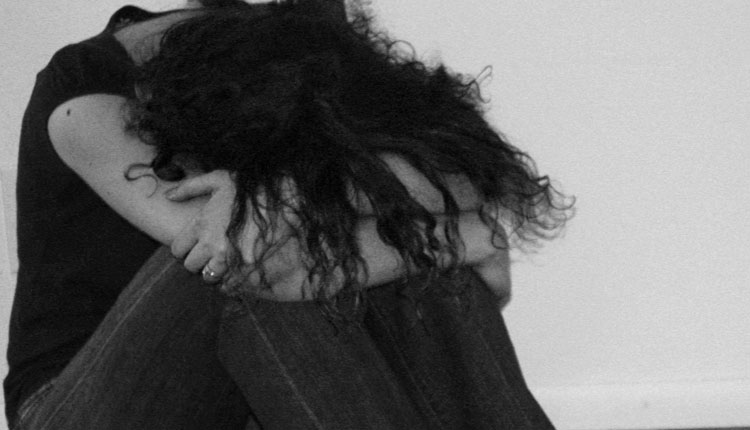
Autism-Related Depression in Mothers and Children
A pair of articles about autism and depression have captured my attention recently. The first involves a study published in JAMA Psychiatry in which researchers from the Harvard School of Public Health examined medical records from 50,000 women enrolled in the Nurses’ Health Study II and found that those who experienced the most physical, emotional and/or sexual abuse as children were 60 percent more likely to have a child with autism. Twenty-five percent of the queried women fell into the top group of the severely abused — a large percentage.
The study doesn’t prove causation, but does note a correlation between the long term mental health of the mother and the well-being of her unborn child. Speculation is that severe abuse has lasting effects on a woman’s immune system or stress response system that leads to more risk for her unborn child. One person went so far as to suggest a woman who has suffered severe childhood abuse should think twice about having children.
While not discounting the risk factor, I think that is an extreme reaction and in effect, punishes the victim twice. Many victims of childhood abuse become wonderful mothers. Intent on rewriting their personal history, they become the mother they wished they’d had.
This study is reminiscent of a previous one in which Dr. Gabor Mate postulated that mothers who are depressed after the birth of their child expose them to high risk of developmental disabilities, even inducing autism.
While I honored the effect of a mother’s depression on her child, I believed it to be one of many “environmental toxins” that contribute to autism, not a sole cause. All autism mothers know it’s easy to forget about taking care of yourself in your quest to take care of your autism spectrum (AS) child. Self-care can become a lofty goal instead of a daily habit. I know my children are hypersensitive to my mood to the point where they actually mirror it.
The other recent article I read about autism and depression involves a new study appearing in the January issue of Research in Autism Spectrum Disorders which concluded that children with autism have much higher rates of suicidal ideation and suicide attempts than their neurotypical peers. The body of data is summarized in this way:
Susan Dickerson Mayes, PhD, from the Penn State College of Medicine in Hershey, and colleagues determined the risk factors for and the frequency of suicide ideation and attempts in 791 children with autism (aged 1–16 years), 35 depressed children without autism, and 186 typical children. The researchers found that suicide ideation or attempts were rated as sometimes to very often a problem by 14% of mothers of children with autism, a rate 28 times greater than reported for typical children (0.5%) but lower than the rate reported for depressed children (43%). Four demographic variables: age ≥10 years, Black or Hispanic, lower socioeconomic status, and male sex were significant risk factors of suicide ideation or attempts among children with autism. Suicide ideation or attempts were experienced by 71% of children who had all four demographic risk factors. Depression, behavior problems, and being teased were the co-morbid psychological problems most highly predictive of suicide ideation or attempts, with nearly half of children with these problems reporting suicide ideation or attempts.
Once again, we see autism mothers suffering from depression at a higher rate, which is only logical given the stresses of raising a child on the spectrum. It stands to reason that poverty would exacerbate an already difficult situation, limiting a family’s access to autism services. Being a boy is a no-brainer, since the common wisdom is that boys are more prone to autism, although Dr. Tony Attwood might disagree
But I am wondering how exactly depression, behavior problems, and being teased are co-morbid psychological problems independent from autism. My experience is that most “behavior problems” are symptomatic of surrounding adults punishing the symptoms rather than addressing the root causes and triggers of the AS child’s behavior.
We know that being teased is frightfully common among individuals with autism. In fact, autism makes a child twice as likely to be bullied at school. And unfortunately, some of these bullies are teachers and administrators ignorant about autism who try to use overwhelming force and/or shame to bring a child into compliance. So if “depression, behavior problems, and being teased” is most highly predictive of suicide ideation or attempts, we are in serious trouble, because from where I sit, they are part and parcel to having autism.
These articles constitute another clarion call for more support for autism families and more education and training within our schools to deal with the exploding number of autism cases. It’s hard to even voice this, but I think the prospect for real change is grim.
Given the fact that we can’t even account for the number of special education children severely injured or killed across our nation, nor even generate a national law concerning the use of restraint and seclusion in our schools, it feels like our kids are considered to “get what’s coming to them” for not behaving properly. I doubt their vulnerability to wanting to take their own lives will be considered the national health crisis that it is.
I hope I’m wrong.
